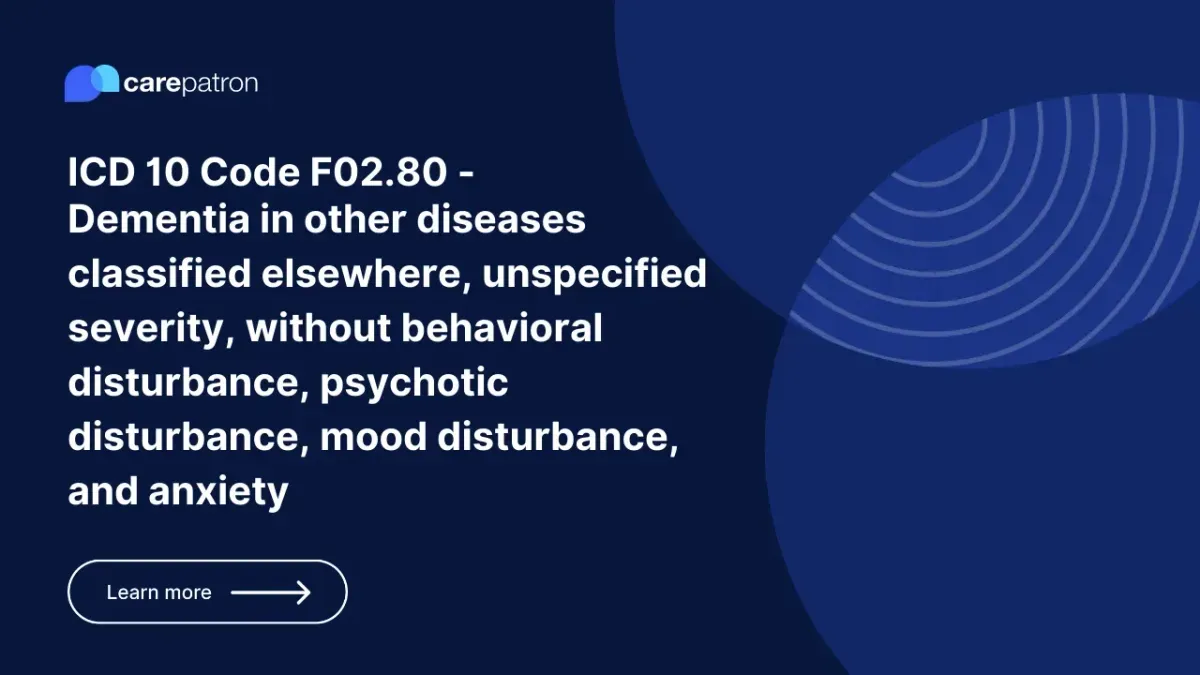
F02.80 – Dementia in Other Diseases Classified Elsewhere, Unspecified Severity, Without Behavioral Disturbance, Psychotic Disturbance, Mood Disturbance, and Anxiety
Learn more about F02.80, its definition, billability, clinical information, synonyms, and FAQs.
Use Code
EHR and practice management software
Get started for free
*No credit card required
Free
$0/usd
Unlimited clients
Telehealth
1GB of storage
Client portal text
Automated billing and online payments
